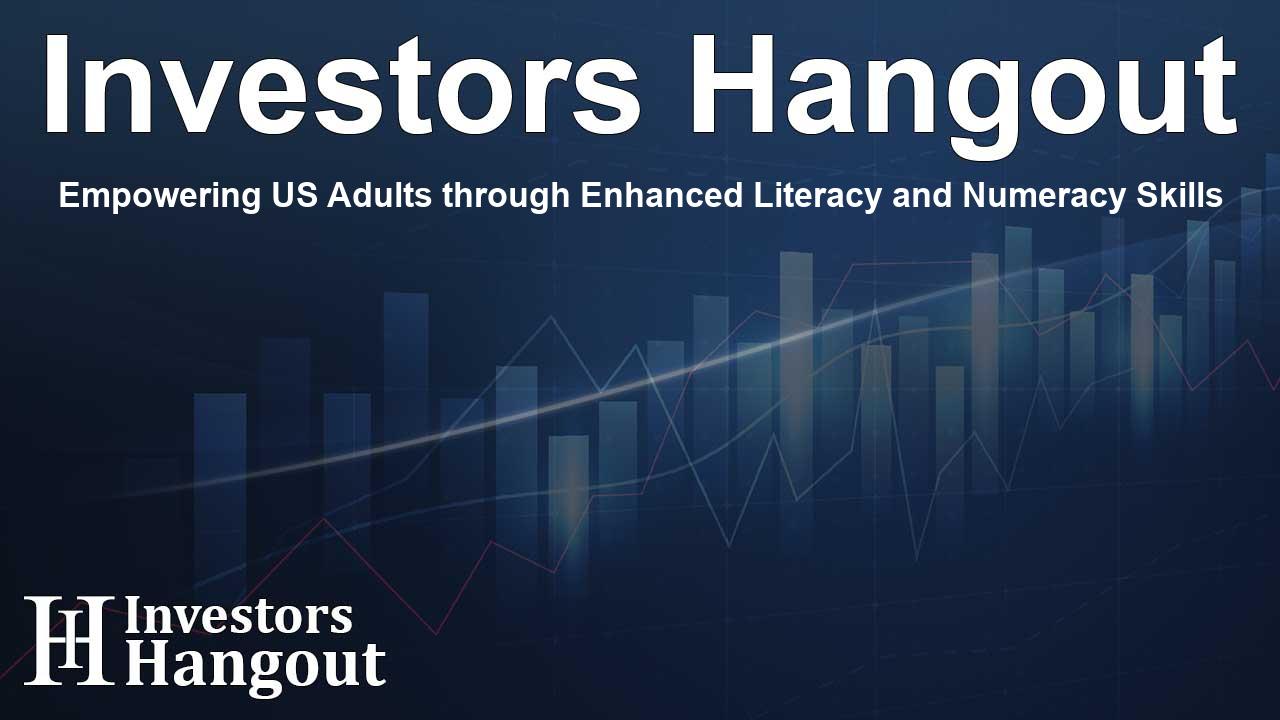Empowering US Adults through Enhanced Literacy and Numeracy Skills

The Importance of Adult Education for US Citizens
In recent years, it has come to light that many adults in the US are struggling with essential skills necessary for thriving in today’s ever-changing environment. Research indicates that an increasing number of adults are faced with lower literacy and numeracy capabilities, which are crucial for participating fully in society. This alarming trend underscores the pressing need for enhanced adult education opportunities.
Recent Findings on Adult Skills in the US
Recent data from the Program for the International Assessment of Adult Competencies (PIAAC) presents a sobering picture. It shows that a significant portion of American adults, specifically those between the ages of 16 and 65, are falling behind in foundational skills. The evidence suggests that approximately 28% of adults are performing at Level 1 in literacy, a rise from previous years, translating to around 60 million individuals. The statistics for numeracy skills are similarly concerning, with around 34%, or 72 million adults, also at this basic level.
Understanding Proficiency Levels
The PIAAC framework categorizes skills from Below Level 1, which indicates minimal to no proficiency, to Level 5, denoting advanced competency. The findings reveal that as many as 68 million adults lack the necessary adaptive problem-solving skills, a critical component in navigating modern life.
The Impact of Low Proficiency Skills on Society
Adults with lower literacy and numeracy skills often face substantial barriers to self-sufficiency and participation in civic life. Such proficiency levels can severely limit their career options and personal growth. Studies have shown that adult education programs can significantly improve participants' economic prospects and overall quality of life. When individuals advance their skills through targeted education, they often see improvements not only in employment opportunities but in their personal confidence as well.
Transformative Potential of Adult Education
As highlighted by Jeff Fantine, executive director of the National Coalition for Literacy, raising awareness about available educational resources is crucial for individuals at lower proficiency levels. Many aren’t aware of the potential pathways they could pursue to enhance their skills. Investing in adult education provides the chance to empower individuals, helping them to tackle everyday tasks more effectively, such as understanding medical labels or managing financial responsibilities.
Creating Meaningful Opportunities for Growth
To truly address the skill gap, we must acknowledge the importance of improving access to quality adult education. Opportunities to learn and grow can dramatically change lives, enabling adults to transition into better-paying jobs or take active roles in their communities. Enhanced skills facilitate better communication with healthcare professionals and assist individuals in understanding complex information such as bills and contracts.
Barriers to Adult Education
Despite this potential, current programs are reaching less than 10% of adults who could benefit from literacy assistance. To see genuine change, we need innovative approaches towards adult learning. Traditionally, literacy was viewed solely as the ability to read; however, it is essential that we adopt a broader perspective that encompasses the practical application of these skills in everyday situations.
The Path Forward for Literacy and Education
Ultimately, helping adults develop their skills will lead to a more informed and capable workforce, fostering healthier, more vibrant communities. Mark Vineis, president and CEO of ProLiteracy, emphasizes that achieving a higher literacy standard should be a national priority. Allocating greater resources, particularly toward underserved communities that face heightened challenges due to low literacy rates, is essential for transformative educational reform.
Community Involvement and Support
Collaboration between educational institutions, employers, and community organizations is vital in offering contextual training that addresses real-world challenges. By actively providing accessible learning opportunities, we can create a ripple effect of positive outcomes—enhancing the well-being of individuals, families, and communities.
Frequently Asked Questions
Why is improving adult literacy important?
Improving adult literacy enhances individuals' ability to participate in society, increases their employability, and boosts overall community health.
What percentage of adults struggle with literacy?
Currently, around 28% of American adults demonstrate only Level 1 proficiency in literacy.
How does adult education impact employment opportunities?
Adult education programs equip individuals with the skills necessary for better job prospects, offering them a pathway to higher wages and job satisfaction.
What barriers do adults face in accessing education?
Many adults are unaware of available educational resources, and current programs are inadequate to meet the needs of the vast population that could benefit.
How can communities support adult education initiatives?
Communities can collaborate with local organizations to offer accessible training, raise awareness, and advocate for more resources directed towards adult education.
About The Author
Contact Ryan Hughes privately here. Or send an email with ATTN: Ryan Hughes as the subject to contact@investorshangout.com.
About Investors Hangout
Investors Hangout is a leading online stock forum for financial discussion and learning, offering a wide range of free tools and resources. It draws in traders of all levels, who exchange market knowledge, investigate trading tactics, and keep an eye on industry developments in real time. Featuring financial articles, stock message boards, quotes, charts, company profiles, and live news updates. Through cooperative learning and a wealth of informational resources, it helps users from novices creating their first portfolios to experts honing their techniques. Join Investors Hangout today: https://investorshangout.com/
The content of this article is based on factual, publicly available information and does not represent legal, financial, or investment advice. Investors Hangout does not offer financial advice, and the author is not a licensed financial advisor. Consult a qualified advisor before making any financial or investment decisions based on this article. This article should not be considered advice to purchase, sell, or hold any securities or other investments. If any of the material provided here is inaccurate, please contact us for corrections.
